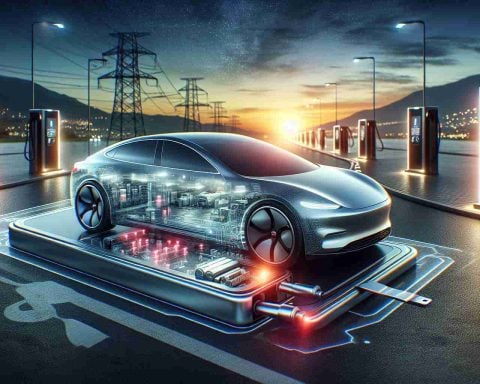As the world seeks more sustainable solutions, a groundbreaking idea is emerging: integrating solar technology directly into electric vehicles (EVs). While electric cars have already revolutionized the automotive industry by reducing dependency on fossil fuels, combining them with solar power could significantly enhance their efficiency and appeal.
What are Solar-Powered Electric Cars?
Solar-powered electric cars feature photovoltaic panels designed to harness sunlight, converting it into electricity to charge the vehicle’s battery. This not only extends the vehicle’s range but also reduces the need for frequent charging from traditional power sources. Current innovations are pushing the boundaries, with some prototypes claiming to generate enough solar energy to power a car for limited daily commutes.
The Advantages
The integration of solar panels offers several key benefits. First, it provides a continuous, renewable energy source, particularly advantageous in sunny regions. Second, by reducing the reliance on grid electricity, solar-powered EVs contribute to a decrease in the carbon footprint associated with non-renewable energy production. Lastly, it can lead to cost savings over time, as drivers potentially spend less on charging.
Challenges Ahead
However, challenges remain, such as the efficiency of solar panels in capturing energy and their effectiveness in less sunny climates. Moreover, the added cost of solar technology could impact the affordability of these vehicles for the average consumer.
As technology advances, the dream of a fully solar-powered electric vehicle may soon become a reality, radically transforming our approach to sustainable transportation.
Solar-Powered EVs: The Next Big Thing in Sustainable Transport
The integration of solar technology into electric vehicles (EVs) represents one of the most exciting frontiers in sustainable transportation. As the world strives for greener alternatives, solar-powered EVs are emerging as a promising innovation. By capturing sunlight and converting it into electricity, these vehicles not only enhance energy efficiency but also broaden possibilities for renewable energy use in daily life.
Latest Innovations and Features
Recent developments in solar-powered EV technology include the design of ultra-thin, flexible photovoltaic panels that can be seamlessly integrated into the vehicle’s surface. This advancement not only improves aesthetic appeal but also increases the energy capture potential. Moreover, some companies are exploring the use of lightweight materials to counterbalance the additional mass of solar panels, thereby maintaining performance and efficiency.
Use Cases and Compatibility
Solar-powered EVs are particularly suited to urban environments where short daily commutes are common. In these settings, the energy captured from solar panels may suffice to meet daily driving needs, significantly reducing reliance on charging infrastructure. Additionally, regions with abundant sunlight stand to gain the most from solar-powered EVs, as these vehicles can harness more solar energy to extend driving range.
Pros and Cons
Pros:
– Reduction in carbon footprint with renewable energy.
– Potential decrease in electricity costs for daily commutes.
– Enhanced vehicle range in optimal sunlight conditions.
Cons:
– Initial costs may be higher due to advanced technology.
– Efficiency varies greatly with weather and geographic location.
– Limited effectiveness in areas with low sunlight exposure.
Market Analysis and Pricing Trends
The market for solar-powered EVs is still in its nascent stages but is projected to grow significantly in the coming years. Industry pioneers are exploring varying strategies to optimize pricing and make solar-powered EVs more accessible. While early models may come with a premium, increased production and technological advancements are expected to drive costs down, making these vehicles more affordable over time.
Security and Sustainability Aspects
In terms of security, manufacturers are focused on ensuring that solar panels are robust and durable, capable of withstanding diverse weather conditions. These EVs contribute to sustainability not only by reducing reliance on non-renewable energy but also through potential advances in solar panel recycling, which could minimize environmental impact.
Future Predictions and Insights
Looking ahead, the evolution of solar-powered EVs is likely to bring about significant changes in how we think about car ownership and energy use. As more consumers prioritize sustainability, these vehicles could become a standard in eco-friendly transportation. Innovations such as enhanced battery storage and improved solar cell efficiency are expected to further bolster this trend.
For more insights into the sustainable transportation revolution, visit Tesla.


















